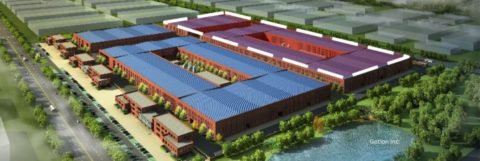Crain’s Detroit Business
March 15, 2023
David Eggert
LANSING — Lawmakers on Wednesday authorized the transfer of $585 million in state funding to support three new multibillion-dollar electric vehicle battery factories in Michigan.
The Democratic-led House Appropriations Committee supported the incentives on a 16-12 party-line vote, with Republicans opposed. The Democratic-controlled Senate Appropriations Committee also must OK the transfer before the money can be disbursed. The state’s economic development board previously blessed the spending.
The package includes:
- a $210 million grant to Ford Motor Co. to build a $3.5 billion, 2,500-job plant in Marshall. The Michigan Strategic Fund Board last month also awarded the Dearborn-based automaker a 15-year tax break worth $772 million for the project and authorized a $36 million loan for the Marshall Area Economic Development Alliance to buy, improve and transfer land. Gov. Gretchen Whitmer last week signed a bill with $630 million to prepare the megasite for Ford.
- a $200 million grant to Our Next Energy Inc. to open a $1.6 billion, 2,100-job EV battery plant in Wayne County’s Van Buren Township. The MSF in October also OK’d a $21.7 million tax exemption and a $15 million loan for the Novi-based company.
- $175 million to support Gotion Inc.’s nearly $2.4 billion, 2,350-job EV battery factory near Big Rapids. Of that, $125 million is a grant to Gotion and $50 million is for The Right Place Inc., a regional economic development organization based in Grand Rapids, to make infrastructure upgrades in support of the project. The MSF in October also awarded China-based Gotion a 30-year tax break worth $540 million.
The panel’s vote followed testimony from a Gotion executive and regional and local leaders including Ferris State University President Bill Pink. The committee heard last week from an Our Next Energy official and in February from a Ford official and state and local leaders who support the Marshall project.
Randy Thelen, president and CEO of The Right Place, said a confluence of factors are driving a wave of “extraordinary projects, the likes of which I have never seen.” He pointed to companies realizing after the COVID-19 pandemic that their supply chains are stretched too thin and that onshoring is important. The electrification of the auto industry also is significant, he said.
“We have not historically competed for projects of this scale,” Thelen said of the Gotion plant. “This is a rare moment for us to see this kind of opportunity. … To see them consider a corner of the state, the northwest portion of the state, that hasn’t seen projects like this frankly ever is a really exciting opportunity for us to see a path to really boost the economy in an area that’s been in decline.”
Rep. Donni Steele, a Republican from Oakland County’s Orion Township who opposed the transfer, noted that all three projects are EV battery factories.
“I’m just really kind of concerned moving forward in the state of Michigan that we don’t necessarily have really a vision and we don’t really have a lot of diversification,” she said.
She pointed to worker shortages and suggested that some of the incentives funding should instead go toward improving schools. Republicans also have criticized Chinese ties to two of the factories.
Thelen, however, said 40,000 people in West Michigan work for auto suppliers. He warned of a reduction in employment amid the transition to EVs because they are simpler to engineer and manufacture than cars powered by internal combustion engines.
“If we take no action, we stand to lose about a third of the employment in that industry, dramatically impacting the state of Michigan, dramatically impacting communities all across the state,” he said. “We have to find ways to offset that loss and reposition ourselves as leaders in this new economy, in this new automotive economy. That to me is why I think this is imperative.”
Rep. Phil Skaggs, an East Grand Rapids Democrat, supported the transfer. He cited competition from Kentucky, Tennessee, Georgia and Nevada for EV investment.
“We have to win this competition for the engineering jobs that will come, the working jobs that will come, the entrepreneurs and the pizza shops, for the supply chain and the construction. This is an extraordinary, serious moment. And it calls for us to govern seriously, to put aside rhetoric, to put aside foreign policy hypotheticals and do what is right for Michigan, for Michiganders and our future.”

